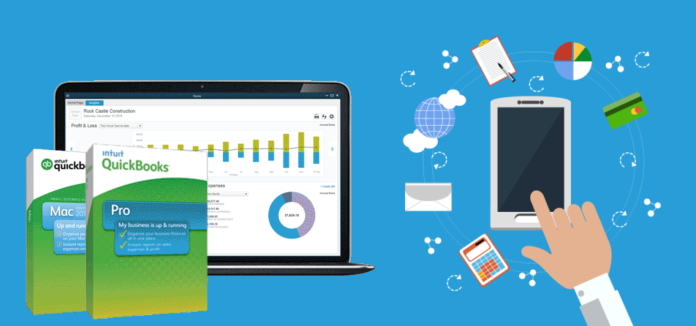By the end of the year, cloud hosting truly began its surge in the world of small business. A big part of that infrastructure is the tools within it, such as accounting software, which has reached new heights with the rise of QuickBooks in the cloud. One of the most well-known names among small businesses, QuickBooks, holds many accounting tools that can be easily used by everyone. However, QuickBooks Desktop Hosting has allowed users to make the most of the software and enrich its potential.
An Overview of Online Accounting Software
Table of Contents
Online accounting software, or cloud accounting software, refers to digital tools which manage your books of accounts through an online platform. Rather than downloading traditional accounting software to your desktop, QuickBooks in the cloud is accessed via a remote server that’s off your premises – and since it’s an off-premises tool accessed online, accessibility isn’t limited to your singular computer. It even helps to mitigate risk for common issues with traditional accounting software, from limited user access to risk for human error.
Traditional Accounting Software Issues
It’s easy to reach for the nearest accounting software upon launching your new firm venture, but traditional platforms have a series of undeniable flaws. Before investing in software without cloud capabilities, consider these typical challenges:
1. Limited Access
Traditional accounting software is installed on select desktops, such as the CIO’s PC, the CEO’s Mac, or those at the VP and managerial levels. This can limit access to others who consistently use the software, such as company accountants, and potentially bottleneck your workflow. By opting for QB in the cloud, your crucial accounting information can be accessed by the people who need it, when they need it. QuickBooks is a cloud accounting platform that allows you to access your and your client’s financial data online on Virtual Cloud Desktop Online at anytime and anywhere. This means you and those with the required permissions can log in at any time, if you have an internet connection.
2. Weak Data Security
Forget the days of on-premises storage on a PC, external hard drive, or USB flash drive. In the modern business era, cloud storage is revered for its supported cybersecurity. By closing the external drives and on-premises liability, you’re avoiding the risk of viruses, corruption, hacking, and regular maintenance that can result in dangerous data loss. Therefore, you’re softening the risk of lost data, time, and most importantly, capital.
3. Manual Data Entry Errors
Traditional accounting software invites human error with manual data entry, QB in the cloud is a bit more thorough. To automate your QB data entry, simply download a plug-in on their app store and follow the steps. Cutting out manual errors also prevents inaccurate financial data from being recorded, which can save your business from potential losses.
Why Is the Switch Necessary?
As a small to mid-sized business owner, an outdated accounting software void of cloud capabilities won’t cut it. Traditional platforms are simply too limited in access, and cybersecurity measures, and vulnerable to human error. Substitute the outdated devices, lacking security, and fragile nature of traditional accounting platforms by siding with QB in the cloud.
Conclusion
Apps4Rent has a proven track record of satisfied clients with seamless transitions into QuickBooks Hosting Solutions. They ensure your business needs are met by providing excellent service all over the United States and apart from that they even provide services to migrate from exchange 2010 to Office 365 with 100% migration assistance and outstanding tech support.


